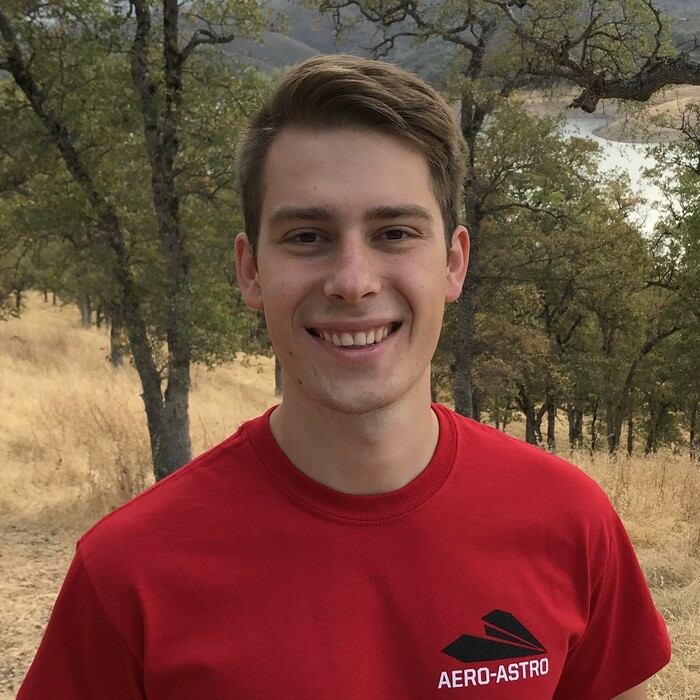Robert Dyro
Robert is currently pursing a PhD in the Aeronautics and Astronautics Department at Stanford University. He received a B.S. in Aerospace Engineering (with Honors) from UCLA in 2018.
Robert’s research interests include behavior modeling and planning optimization in robotics – how to incorporate known structure into statistical models describing the behavior of others and how to efficiently, and in real-time, plan optimally with those models. He is interested in designing new algorithms that perform well in practice and are computationally efficient.
When not in the lab, Robert is out running or reading, but very rarely at the same time.
Currently at Google
ASL Publications
-
R. Dyro, M. Foutter, R. Li, L. Di Lillo, E. Schmerling, X. Zhou, and M. Pavone, “Realistic Extreme Behavior Generation for Improved AV Testing,” in Proc. IEEE Conf. on Robotics and Automation, 2025.
Abstract: This work introduces a framework to diagnose the strengths and shortcomings of Autonomous Vehicle (AV) collision avoidance technology with synthetic yet realistic potential collision scenarios adapted from real-world, collision-free data. Our framework generates counterfactual collisions with diverse crash properties, e.g., crash angle and velocity, between an adversary and a target vehicle by adding perturbations to the adversary’s predicted trajectory from a learned AV behavior model. Our main contribution is to ground these adversarial perturbations in realistic behavior as defined through the lens of data-alignment in the behavior model’s parameter space. Then, we cluster these synthetic counterfactuals to identify plausible and representative collision scenarios to form the basis of a test suite for downstream AV system evaluation. We demonstrate our framework using two state-of-the-art behavior prediction models as sources of realistic adversarial perturbations, and show that our scenario clustering evokes interpretable failure modes from a baseline AV policy under evaluation.
@inproceedings{DyroFoutterEtAl2024, author = {Dyro, R. and Foutter, M. and Li, R. and Di Lillo, L. and Schmerling, E. and Zhou, X. and Pavone, M.}, title = {Realistic Extreme Behavior Generation for Improved {AV} Testing}, booktitle = {{Proc. IEEE Conf. on Robotics and Automation}}, year = {2025}, keywords = {pub}, owner = {foutter}, timestamp = {2024-10-30}, url = {https://arxiv.org/pdf/2409.10669} } -
R. Dyro, E. Schmerling, N. Arechiga, and M. Pavone, “Second-Order Sensitivity Analysis for Bilevel Optimization,” in Int. Conf. on Artificial Intelligence and Statistics, 2022.
Abstract: In this work we derive a second-order approach to bilevel optimization, a type of mathematical programming in which the solution to a parameterized optimization problem (the “lower” problem) is itself to be optimized (in the “upper” problem) as a function of the parameters. Many existing approaches to bilevel optimization employ first-order sensitivity analysis, based on the implicit function theorem (IFT), for the lower problem to derive a gradient of the lower problem solution with respect to its parameters; this IFT gradient is then used in a first-order optimization method for the upper problem. This paper extends this sensitivity analysis to provide second-order derivative information of the lower problem (which we call the IFT Hessian), enabling the usage of faster-converging second-order optimization methods at the upper level. Our analysis shows that (i) much of the computation already used to produce the IFT gradient can be reused for the IFT Hessian, (ii) errors bounds derived for the IFT gradient readily apply to the IFT Hessian, (iii) computing IFT Hessians can significantly reduce overall computation by extracting more information from each lower level solve. We corroborate our findings and demonstrate the broad range of applications of our method by applying it to problem instances of least squares hyperparameter auto-tuning, multi-class SVM auto-tuning, and inverse optimal control.
@inproceedings{DyroSchmerlingEtAl2022, author = {Dyro, R. and Schmerling, E. and Arechiga, N. and Pavone, M.}, title = {Second-Order Sensitivity Analysis for Bilevel Optimization}, booktitle = {{Int. Conf. on Artificial Intelligence and Statistics}}, year = {2022}, keywords = {pub}, owner = {rdyro}, url = {https://arxiv.org/abs/2205.02329}, timestamp = {2022-02-05} } -
R. Dyro, J. Harrison, A. Sharma, and M. Pavone, “Particle MPC for Uncertain and Learning-Based Control,” in IEEE/RSJ Int. Conf. on Intelligent Robots & Systems, 2021.
Abstract: As robotic systems move from highly structured environments to open worlds, incorporating uncertainty from dynamics learning or state estimation into the control pipeline is essential for robust performance. In this paper we present a nonlinear particle model predictive control (PMPC) approach to control under uncertainty, which directly incorporates any particle-based uncertainty representation, such as those common in robotics. Our approach builds on scenario methods for MPC, but in contrast to existing approaches, which either constrain all or only the first timestep to share actions across scenarios, we investigate the impact of a partial consensus horizon. Implementing this optimization for nonlinear dynamics by leveraging sequential convex optimization, our approach yields an efficient framework that can be tuned to the particular information gain dynamics of a system to mitigate both over-conservatism and over-optimism. We investigate our approach for two robotic systems across three problem settings: time-varying, partially observed dynamics; sensing uncertainty; and model-based reinforcement learning, and show that our approach improves performance over baselines in all settings.
@inproceedings{DyroHarrisonEtAl2021, author = {Dyro, R. and Harrison, J. and Sharma, A. and Pavone, M.}, title = {Particle MPC for Uncertain and Learning-Based Control}, booktitle = {{IEEE/RSJ Int. Conf. on Intelligent Robots \& Systems}}, year = {2021}, keywords = {pub}, owner = {rdyro}, timestamp = {2022-02-05}, url = {https://arxiv.org/abs/2104.02213} }
